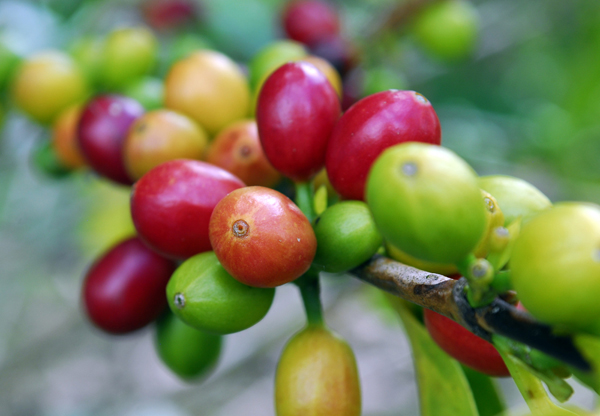In Vietnam, saving water isn’t just sustainable – it’s also profitable
For many coffee lovers, the day doesn’t start until the first sip. Coffee is the second-most traded commodity in the world, and it is crucial to the economies of many developing countries. But to keep millions of people supplied with their favorite caffeinated beverage, water-smart coffee production is the spout of opportunity.

Vietnamese coffee farmers should reduce irrigation by one-third during the dry season to ease pressure on groundwater and increase profits, according to research just published.
Scientists found that a period of ‘water stress’, followed by strategic timing of irrigation actually triggered plant growth and boosted yields of coffee cherries/beans. It also enabled farmers to save on production costs from labor, fuel and irrigation equipment.
This is good news for Vietnam, the world’s second-largest coffee producer. Coffee production accounts for 3% of the country’s GDP and employs around 2 million people. Water scarcity is the largest threat to the country’s coffee sector, and more sustainable irrigation will help cushion the impact of erratic rainfall and drought.
But at the moment, many farmers are irrigating their coffee plants with twice the recommended amount of water. According to the journal article, they believe that more irrigation equals higher yields, when in reality it can actually cause the opposite effect.
“We were very excited to discover that decreasing irrigation could benefit farmers in addition to reducing groundwater pumping,” said lead author Upali Amarasinghe of the International Water Management Institute (IWMI).
IWMI was invited to join the project funded by the Swiss Agency for Development and Cooperation (SDC) and Nestlé (a major buyer of Vietnamese coffee) to develop recommendations for more sustainable production. The project was implemented by EDE Consulting, together with the country’s Western Highlands Agriculture and Forestry Science Institute (WASI).
Co-author Dave D’haeze said, “The project has generated enormous momentum in the industry. Nestle and SDC committed to a five-year program to support the dissemination of research results to 50,000 coffee farming households in Vietnam. The program also actively works on a communication strategy to raise more awareness among industry players, standards programs and public institutions both in Vietnam and internationally.”
The researchers and partners are now working with Vietnam’s Ministry of Agriculture and Rural Development (MARD) to put these new irrigation guidelines into practice. For success, farmer field schools and demonstration plots will be key to train farmers when to irrigate and on how much water to use. According to the journal article, this will need to be coupled with trainings on other practices such as pruning and fertilizer use. As a spin-off of the research, an awareness-raising movie on rational water use in the Robusta coffee regions in Vietnam was developed and broadcasted both on national and local TV channels; it is also available for download from the websites of the provincial extension centers.
[hr-border top=”no”/]
Upali Amarasinghe is a Senior Researcher at the International Water Management Institute (IWMI) Regional Office in Hyderabad, India.
Dave D’haeze is a Regional Representative at Embden Drishaus and Epping (EDE) Consulting.
To read:
Amarasinghe, U. A.; Hoanh, C. T.; D’haeze, D.; Hung, T. Q. 2015. Toward sustainable coffee production in Vietnam: more coffee with less water. Agricultural Systems, 136:96-105. [doi: http://dx.doi.org/10.1016/j.agsy.2015.02.008]
[hr top=”yes”/]
This work has been undertaken as part of the CGIAR Research Program on Water, Land and Ecosystems (WLE).

